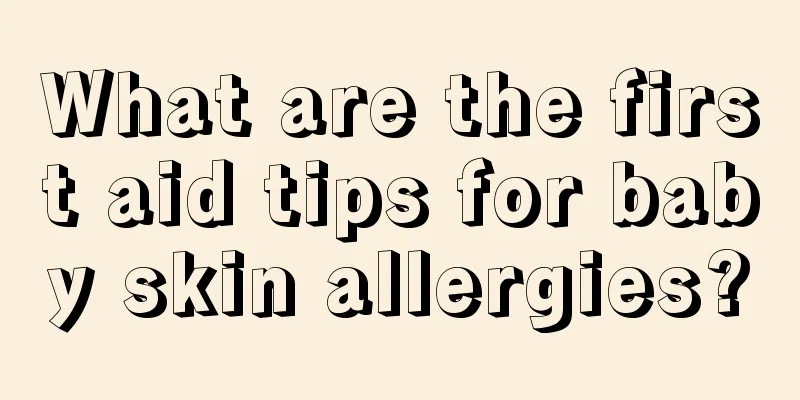What should I do if my child has athlete's foot?

|
Athlete's foot is a very common disease in life, and it only affects certain age groups. It can occur at any age. Both the elderly and children are likely to suffer from athlete's foot. If a child suffers from athlete's foot, parents must not blindly give the child medication, or listen to some folk remedies. Some folk remedies are very irritating. If used for children, it will irritate the skin, and severe cases may cause allergies or worsen symptoms. So why do children have athlete's foot? There are two reasons1. Personal reasons Children exercise a lot and have a high metabolism. In addition, the human body has more sweat glands on the feet and sweats a lot. If the shoes are kept wet for a long time, a large number of bacteria will be produced to decompose keratin. Then, combined with sweat and lactic acid, the feet will produce odor. If children do not wash their feet regularly, it will develop into severe athlete's foot. 2. External infection Although younger children exercise a lot, they are not strong enough to develop athlete's foot. Generally, if they develop athlete's foot, it is largely transmitted from their parents. Children like to wear adults' slippers out of curiosity. Also, parents may not pay attention when washing socks and mix children's socks with their own socks, or adults and children may share a foot towel.
Apply medicine Once a child suffers from athlete's foot, parents can treat him with topical medication for athlete's foot, but the medication must be applied for one month to prevent recurrence of athlete's foot. When choosing medicine, try to choose pure Chinese herbal formula, which will cause less harm to children's skin and is also more effective. Cutting off the channels for fungal transmission In addition to applying medication when children have athlete's foot, the channels of fungal transmission must be cut off from the source. First, change the child's shoes. Do not let the child wear shoes that are too thick. Otherwise, after the child sweats, the shoes will not be breathable, and the inside will be damp, which can easily cause athlete's foot, foot odor and other foot diseases. When choosing shoes, try to choose shoes that are similar in thickness to adult shoes or slightly thinner. In addition, you should change your child's shoes and socks frequently, take out the insoles in the shoes at night to ventilate them, and wash their feet every day to keep them clean.
If one of the parents has had athlete's foot, then they should pay special attention to the use of their child's toiletries and not put them together with their child's. Children should have their own bathing and foot washing products. After washing, they should use cotton swabs to wipe the water between the toes, especially for fatter children, as water can easily remain between the toes. The temperature in the gaps between children's feet is no lower than other parts of the body. Coupled with a certain level of humidity, it is easy for fungi to grow, leading to athlete's foot infection. In addition, parents are reminded not to blindly use too hot water to scald their children's feet. If hot water is used to scald children's feet, it will cause the plantar ligaments of the children to relax, which is not conducive to the development and maintenance of the arch of the foot. When washing your child's feet, the water temperature should not exceed 40℃ in summer and 42℃ in winter. Just use your hand to test whether it is warm. The amount of water should just cover the feet. The best soaking time is 3 to 5 minutes. After washing, it is best for the mother to massage the child's feet, which will help sleep and growth and development. |
<<: What should I do if my child has tracheal inflammation?
>>: What toothpaste is good for a 10-year-old?
Recommend
What are the causes of stomach pain in two-year-old babies?
Some babies always complain of stomachaches, but ...
What should I do if my child has a stuffy and runny nose?
If you have a stuffy nose and a runny nose, of co...
What supplements are best for children with anemia?
Many children will suffer from anemia when they a...
Why are baby's feet shaking?
Everyone knows that the baby's physical devel...
What should I do if my child doesn’t pay attention in class?
Parents are generally concerned about their child...
What are the dangers of long foreskin in children?
Many parents find that their baby boys have fores...
What is the cause of a child having a fever while sleeping?
Many children will experience this phenomenon, th...
What are the signs of a three-year-old baby’s low IQ?
As a baby grows, intellectual development is very...
What to eat for 5 month old baby
For parents, the most exciting thing is to witnes...
There are white fat particles on the baby's face
Generally speaking, babies' skin is relativel...
How to prevent baby from bloating when drinking milk?
Young babies do not know how to pause when drinki...
Symptoms of parasites in children
Parasites are extremely harmful to children's...
Causes of white blood cells in stool
The presence of white blood cells in stool is a c...
What should I do if my child has an itchy throat and dry cough? Parents can do this
If a child has an itchy throat and dry cough, par...
What should I do with my child's foreskin?
If a child's foreskin is too long, it is easy...









